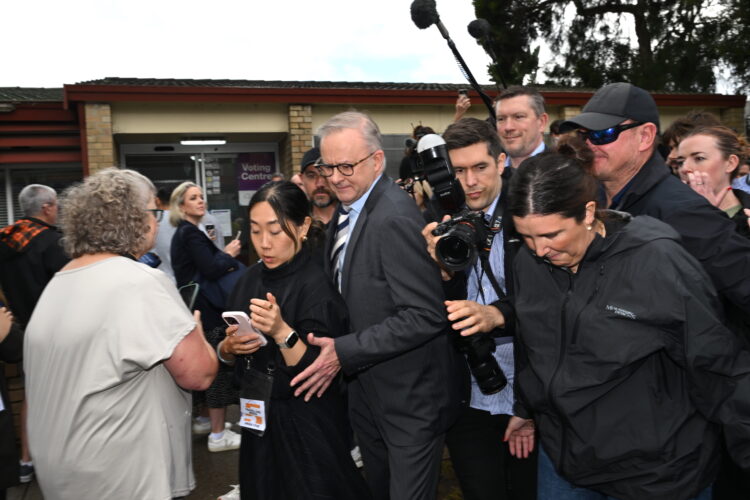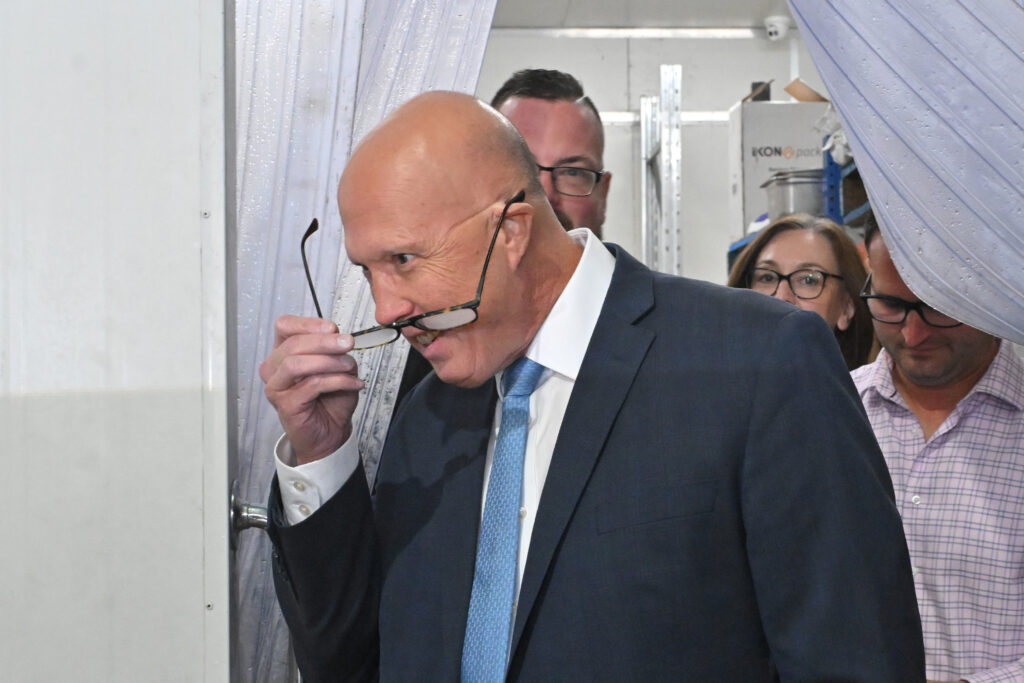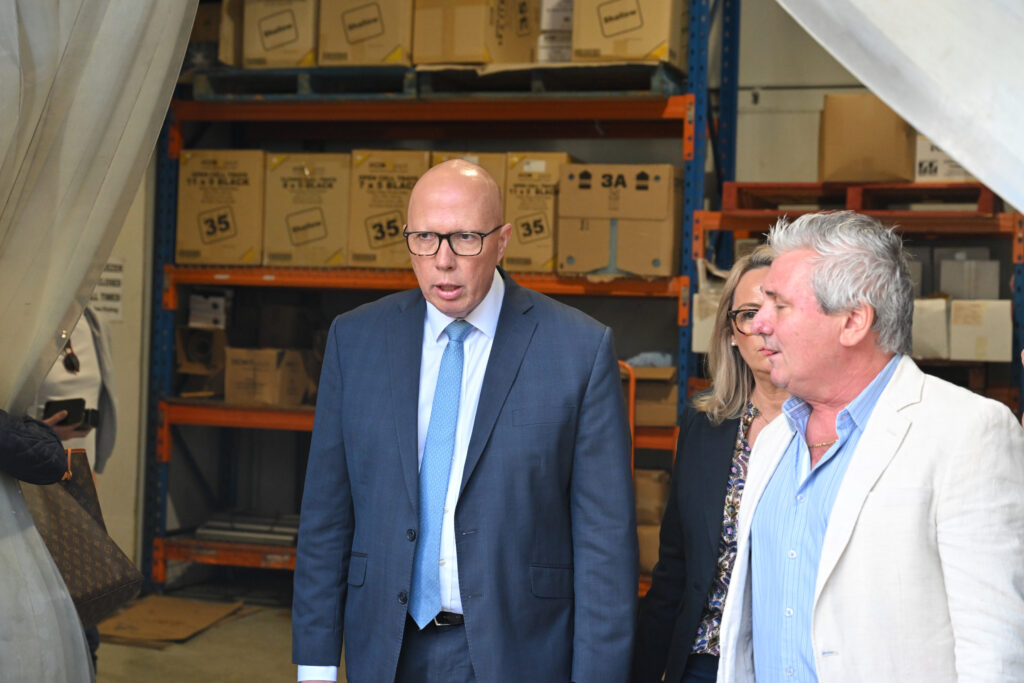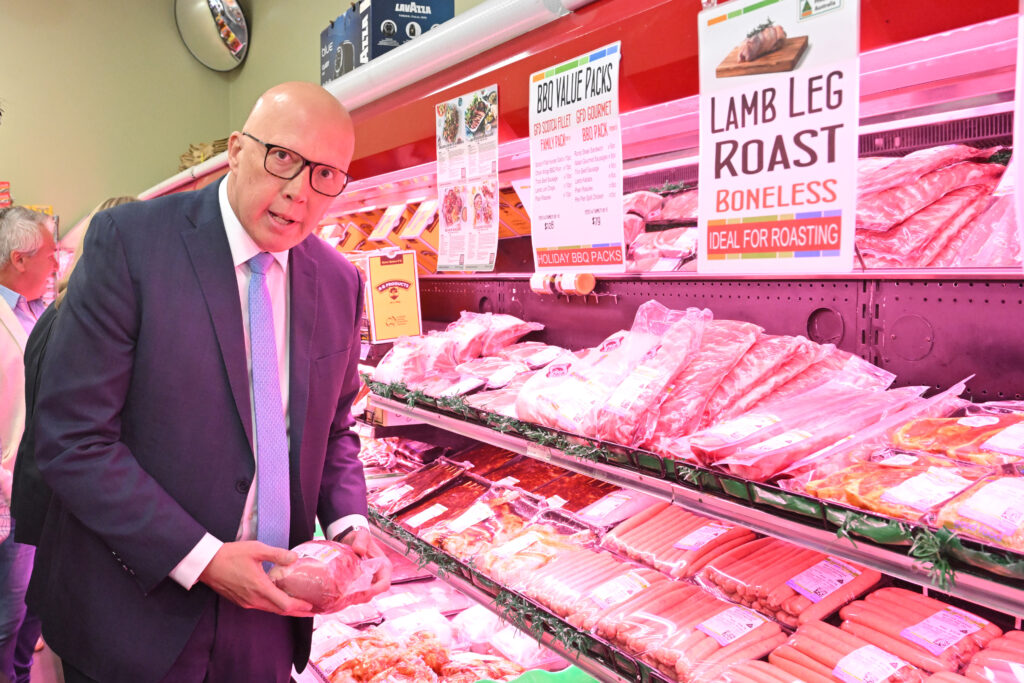Peter Dutton and Jane Hume have both come out today to say the Coalition is not thinking of a road user charge, but it is the latest round of confusion to emerge out of the LNP campaign.
Mon 28 Apr
Australia Institute Live: Day 31 of the 2025 election campaign. As it happened.
This blog is now closed.

Key posts
The Day's News
Given the upcoming Four Corners on the election and the story on family trusts, it might be worth revisiting this from Research Manager, Rod Campbell from earlier this year.
Tax loopholes for some
The first thing to understand is that there are far fewer tax loopholes for avoiding tax on wages. If you work for a living, like most Australians, there are not many tax tricks for you.
If you own assets and earn income from investments, however, things are a little different. How you own the assets is also important. Simply owning your own home is nice, but not as good as owning assets through a discretionary trust, a self-managed super fund, or a family company.
Financial vehicles
A discretionary trust is a way of holding income earning assets where the income stream can be split between beneficiaries. This means money can be directed to the people in the trust who face the lowest marginal tax rates, such as adult children, rather than a higher-earning parent, who faces a higher tax rate.
The income earned from trusts overwhelmingly goes to high income earners. Treasury estimates (page 47) that the top 10% of income earners receive 63% of the income from trusts, while the bottom half of income earners get just 11% of the income.
A self-managed super fund helps reduces taxation because of the various tax breaks for superannuation. For example, an owner might have their business in their self-managed super fund, with the income to the fund being taxed at a lower rate than it would have if it was owned in the business owner’s name.
A family company, like trusts and self-managed super funds, is a vehicle for owning assets. If the assets are owned by a family company, then profits are subject to company tax rates. This can be as low as 25% if the company turnover is less than $50 million per year.
All three of these asset-owning vehicles are entirely legal. And they can have legitimate uses. But they also provide tax loopholes that can be used to reduce the amount of tax someone has to pay and to obscure who actually owns the assets.
Level the playing field
This is fundamentally unfair. These structures for reducing tax are mostly only available to the wealthy. The average wage earner cannot structure their income through such complex tax structures.
U-turn on truth in political advertising
In a fundraising email for Australians for Prosperity, Jason Falinski has U-turned on truth in political advertising laws and is talking darkly about an Albanese “regime”.
Jason Falinski called for truth in political advertising laws in the 2019 campaign and after the election joined Zali Steggall in making a joint submission to JSCEM on the topic (based on our research).
Now:
“Albanese is proposing to introduce Orwellian “truth in political advertising” laws that will severely limit Australians’ free speech rights. He is backed by Zali Steggall.”
“I believe the Albanese-Holmes a Court-Bandt regime will ultimately fail, because tyranny normally does. But we must ensure they fail now, not after years of ruling with an iron fist.”
Not just a U-turn from his own views of six years ago, but calling the position “tyranny”!
Labor costings to be announced at 2.15
And Jim Chalmers and Katy Gallagher have called a press conference for the next hour – which means Labor is about to announce its costings.
Four Corners is taking a look at the election campaign and the people who want to be prime minister.
Here is an early taster from ABC News‘ Rory Callinan of ABC Investigations, Louise Milligan, Ben Schneiders, Ben Butler, Alex McDonald, and Neil Chenoweth
Opposition Leader Peter Dutton failed to declare for two years his interest in a family trust that operated lucrative childcare businesses when he was a cabinet minister, a Four Corners investigation has found.
Documents obtained by Four Corners and ABC Investigations show that while Mr Dutton’s register of interests disclosed his wife Kirilly’s interests in childcare operations at the time, he did not declare between 2014 and 2016 that he was a beneficiary of the RHT Family Trust that owned the businesses, as required by parliamentary rules.
The investigation also analysed more than 20 years of property records tied up in complicated and opaque trust structures and found that the Dutton family, with Peter Dutton’s father Bruce, made almost $15 million in profit from buying and selling private childcare businesses as well as dozens of residential property deals.
Liberals Against Nuclear have released some polling showing that the Liberal held seat of Deakin is at risk because of the nuclear policy, and it is not helping Trevor Evans bid for Brisbane. Single seat polling is hard, and it’s also hard to say there is any one issue impacting voters, but here is the group’s statement:
A new uComms poll shows leading Liberal frontbencher Michael Sukkar could lose his seat at the coming election if the Party persists with its unpopular nuclear plan.
The poll, commissioned by Liberals Against Nuclear, shows Labor and the Coalition tied at 50-50 in two-party preferred terms in Deakin. However, the same polling reveals that if the Liberals dumped their nuclear policy, they would surge to a commanding 53-47 lead.
The polling follows a broader survey across 12 marginal seats that showed the Liberal Party would gain 2.8 percentage points in primary vote if it abandoned the nuclear energy policy.
An earlier poll in the seat of Brisbane found the nuclear policy was a significant drag on Liberal candidate Trevor Evans’ support.
The Deakin polling showed women voters are particularly opposed to the nuclear policy, with 53.2% of women saying it makes them less likely to vote Liberal compared to 41.3% of men. Overall, 47.5% of Deakin voters are less likely to support the Coalition because of the nuclear policy.
The data also revealed that 56.1% of respondents don’t support nuclear power at all, with concerns about renewable energy investment reductions (19.0%), nuclear waste management (15.9%), and high build costs (13.0%) being the primary objections.
In the crucial 35-50 age demographic that makes up many families in Deakin, 48.4% are less likely to vote Liberal due to the nuclear policy.
It’s impossible to be single and save for a deposit in Sydney – no matter how good your job is
For most people in Sydney – if you had started saving for a house a decade ago, you would be further away from your goal.
In 2015 Joe Hockey told people that if they wanted to own a house the first thing they needed to do was “get a good job that pays good money“. New research by The Australia Institute has shown just how out of touch that statement was then, and how even worse it remains now.
We looked at the median salary of a range of occupations from surgeon to principal, electrician down to the low-paying checkout operator to test Joe Hockey’s claim that they would be able to save for 20% of the median established house in Sydney. We estimated them saving 15% of their after tax income and also earning the average interest on those savings.
The result is that no one – not even surgeons would have been able to save 20% of a deposit in the past 10 years. Even worse, most occupations would actually be further away from the goal.
In June 2015 the target deposit was $159,925 representing 20% of the median house price in Sydney of $799,625. By December last year they would have saved $96,069 and yet because the price of houses has risen so fast, they would now be $187,871 short of the goal of a $283,940 deposit on the median house price of $1.4m.
This was not the case in earlier times. In the 1980s, someone on median male full-time earnings would have been able to save for a median-sized deposit in Sydney in well under 10 years.
But we know that many people save for a deposit as a couple, so we investigated how couple of various occupations would be doing.
Shockingly even a couple of a school principal and a teacher, or an accountant and a nurse, or an electrician and a bank worker and many other couples would be still waiting to afford a deposit a decade after starting to save.
The crisis of housing affordability did not just start in the past few years – it has been an issue for more than a decade now. The old lines and advice about saving and working hard and cutting back on luxuries no longer make sense – if even a surgeon cannot save for a hose in Sydney, then what hope does anyone?
This research just shows how urgent is the need for significant changes to housing policy – the need to end taxation breaks for investors that have set fire to the house prices and for the government to increase the number of public-sector housing construction to supply low-priced housing and more rental properties.
Governing from Sydney doesn’t save costs – it increases them
Peter Dutton keeps making the threat to cut 41,000 public service jobs in Canberra. That of course ignores, as the Minister for Finance, Sen Katy Gallagher, said that when in government the Coalition “quietly employed a shadow workforce of 54,000 – costing taxpayers $20 billion in just one year.”
On top of that Dutton wants to work-from-home out of Kirribilli just like Donald Trump often operates out of Mar-a-Lago – Canberra staff would have to re-locate there.
What will that mean?
If Dutton moved into Kirribilli it would mean lots of business for the airlines, the VIP fleet and taxis, moving public servants from Canberra for briefings.
It will also mean more security around Kirribilli. Lots of travel allowance for his personal staff whether they are based in Sydney or Canberra.
It also probably means he would have most Cabinet meetings in Sydney including Expenditure Review, National Security and other cabinet sub-committees – again lots more public servants travelling Canberra to Sydney and back again.
More travel allowances – this time for public servants. Cabinet room facilities would have to be duplicated in Sydney etc.
This happened under Howard and Morrison. It doesn’t reduce costs – it increases them.
Nearly 40 years of efficiency dividends, and what have we got to show for it?
The size of the public service has been one of the sharper issues in this election campaign. But so far, the debate has been about “cuts” or “no cuts”, “working from home” or “back to the office you go”.
The Coalition is doggedly promising to cut 41,000 public servants in Canberra. Yesterday, public service minister and Labor’s ACT Senate candidate Katy Gallagher said the number of public servants was “about right”, but as the ABC pointed out, she “did not rule out cuts altogether”.
Her exact words were: “there may be some changes across departments and agencies as programs finish and other priorities ramp up”.
There’s an obvious question here: if there’s still room for greater efficiency in the public service, what good does the annual efficiency dividend on the public service do?
The efficiency dividend was brought in by the Hawke Government in 1987. It forces government departments and agencies to find enough savings and efficiencies in their operations to accommodate a 1% cut in their budget each year.
It’s been around for nearly forty years now, and governments dial it up or down depending on whether they think there’s political advantage in it. But whichever way you look at it, they haven’t worked as intended.
As the head of PM&C Glynn Davis remarked a few years ago, the efficiency dividend puts a handbrake on the public service’s capacity to learn from the past and rebuild after crises.
Many smaller agencies, including Canberra’s cultural institutions, are barely able to function anymore without emergency funding top-ups to mitigate the effects of the efficiency dividend on their budget. Their job is to grow and collect, while also cutting their operational costs each year. A pretty difficult balancing act for anybody to manage.
Efficiency dividends are supposed to make the public service more streamlined and responsive to the needs of the public. It hasn’t worked as intended. The largest agencies (cough: “defence”) benefit from the benevolence of governments who want to look tough, and the smallest agencies on the frontlines of public engagement tend to suffer from the same attitudes on high.
Independent ACT Senator, David Pocock has been a critic of unfair efficiency dividends in the recent past. The minister may be unmoved by arguments about public service capacity and institutional fairness, but surely the politics are obvious.
And here is AAP photographer Mick Tsikas with Peter Dutton’s campaign:


